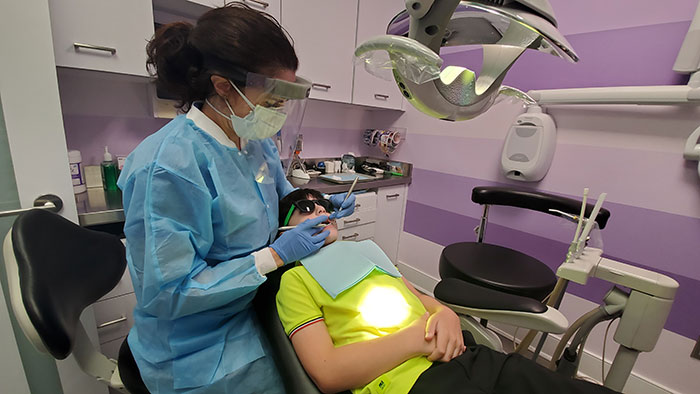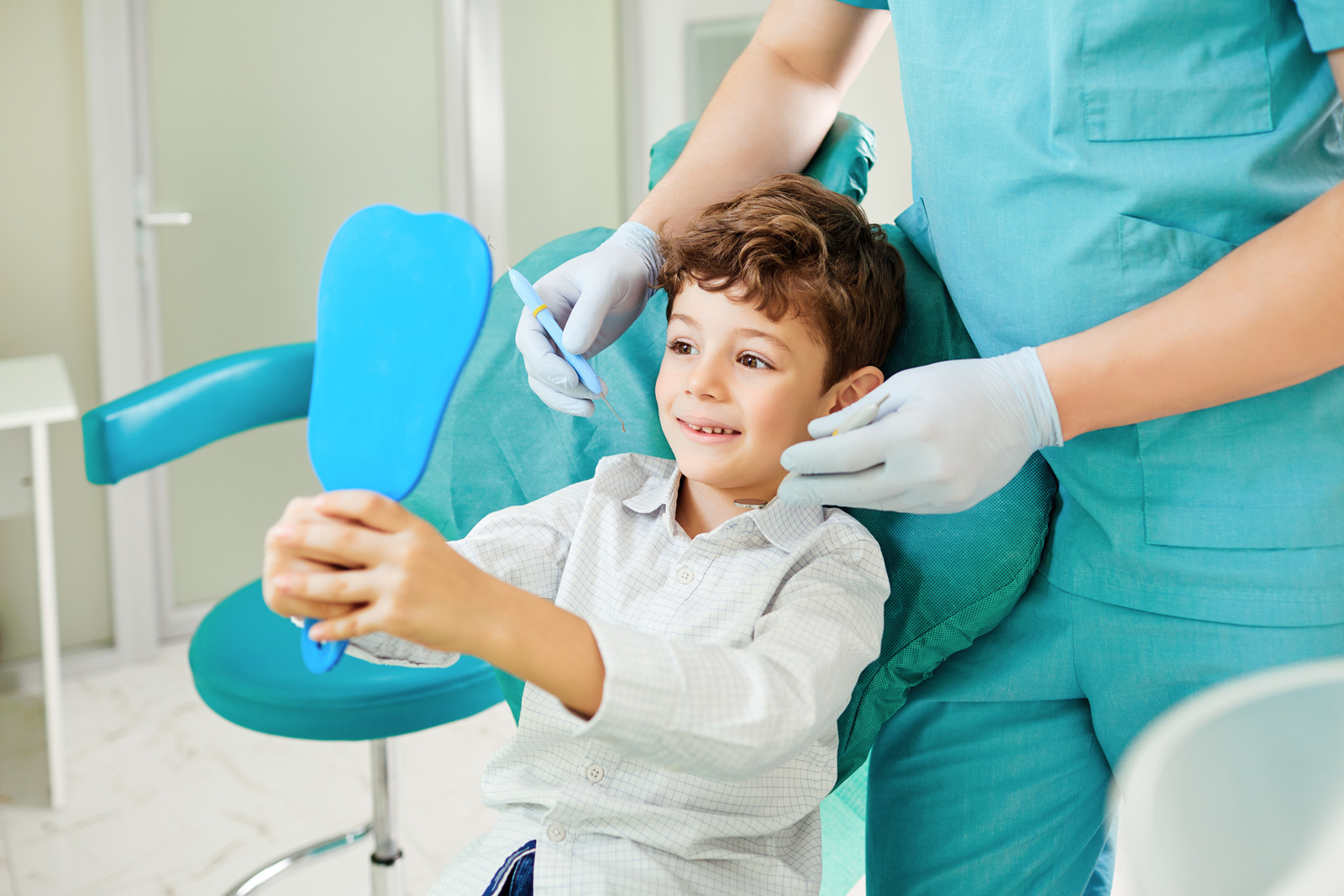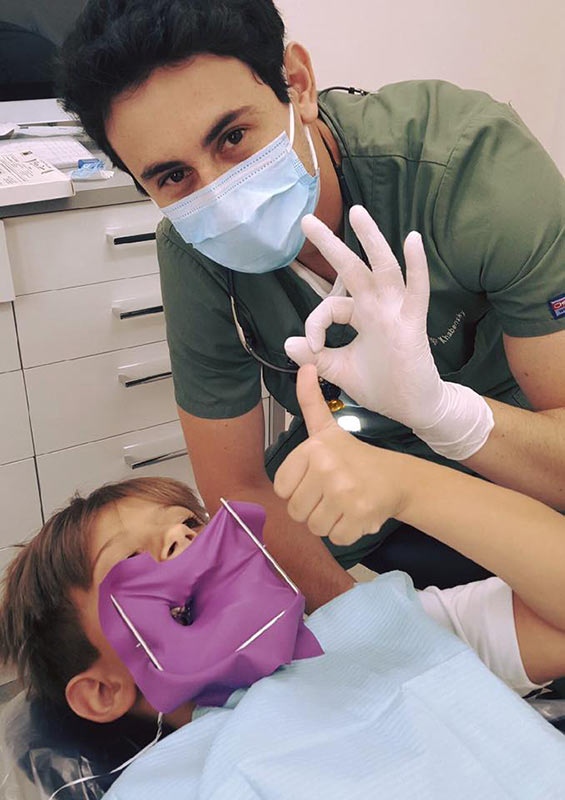Kids Dentist: Gentle and Enjoyable Dental Care for Children
Kids Dentist: Gentle and Enjoyable Dental Care for Children
Blog Article
A Comprehensive Guide to Pediatric Dental Treatment and Its Duty in Stopping Typical Oral Issues
Recognizing pediatric oral treatment is necessary for establishing a structure of long-lasting dental health in kids. Early oral visits, appropriate oral hygiene methods, and dietary recognition are vital components that can dramatically reduce the danger of typical oral troubles such as tooth cavities and malocclusion. By equipping both caregivers and kids with the necessary understanding and skills, we can cultivate healthy and balanced habits that promote anxiety-free oral experiences. Yet, the concern remains: how can these approaches be successfully implemented to guarantee lasting outcomes?
Significance of Very Early Dental Sees
Identifying the importance of very early dental check outs can establish the structure for a youngster's long-lasting dental health. Developing a relationship with a pediatric dental professional as early as the eruption of the very first tooth, normally around six months of age, is important. These first sees not only acquaint youngsters with the dental setting yet also enable very early discovery of potential concerns, such as misalignment or dental caries.
Very early oral check-ups encourage caregivers with valuable expertise concerning correct dental care, dietary recommendations, and the avoidance of oral conditions. Pediatric dental experts are experienced in dealing with the unique demands of children, guaranteeing that they obtain age-appropriate education on dental hygiene. In addition, these check outs supply a possibility to review habits such as thumb-sucking and pacifier use, which can impact oral advancement.
Essential Oral Health Practices
Establishing a solid foundation for a youngster's dental health and wellness goes beyond normal oral check outs; it additionally includes instilling effective oral hygiene techniques from a very early age. Caregivers and parents play an important role in teaching kids appropriate techniques to maintain their oral wellness.

Flossing need to start when two teeth touch, as this prevents plaque buildup in hard-to-reach locations. Moms and dads need to help their youngsters with cleaning and flossing up until they have to do with 7 or 8 years of ages to ensure thoroughness.
Furthermore, establishing routine dental check-ups every 6 months allows for specialist tracking of dental health. Showing youngsters the significance of dental health and making it an enjoyable, interesting activity can cultivate long-lasting healthy routines that are vital in stopping common dental troubles.

Role of Nutrition in Dental Wellness
Nourishment plays a pivotal function in preserving optimal oral health, as the foods kids consume can substantially impact the advancement and toughness of their click this site teeth. A healthy diet abundant in vital vitamins and minerals is crucial for building solid enamel and sustaining overall dental health.
Alternatively, a diet regimen high in acids and sugars can lead to destructive results on oral health and wellness. Sweet treats and drinks can promote the growth of hazardous bacteria in the mouth, causing increased acidity and a greater risk of dental cavity. It is crucial for caregivers to encourage healthier snack choices, such as fruits, vegetables, and entire grains, which not only supply needed nutrients yet additionally advertise saliva production, further safeguarding teeth.
Typical Dental Problems in Kid
Oral health issues are a common concern for numerous moms and dads, as children can experience a selection of problems that may influence their dental health. One prevalent issue is cavities, or tooth cavities, which emerge from the demineralization of tooth enamel as a result of acid-producing bacteria. This condition is usually intensified by poor nutritional article source habits, such as frequent consumption of sugary snacks and drinks.
Another usual issue is malocclusion, where teeth are misaligned, resulting in difficulties in biting, chewing, and talking. This can arise from hereditary elements or habits such as thumb sucking and extended pacifier usage. Additionally, gingivitis, a very early kind of periodontal disease, can occur in children, frequently as a result of insufficient dental health methods. It is defined by red, puffy gum tissues that might bleed during brushing.
Tooth injuries, including avulsions or cracks, are additionally regular amongst energetic children. Normal oral check-ups play a vital role in discovering and addressing these usual oral concerns successfully.
Building Lifelong Dental Behaviors
Instilling excellent dental health practices early in life sets the structure for a life time of healthy and balanced teeth and gums. Establishing a regular routine for cleaning and flossing is essential; kids must brush their teeth twice a day with fluoride tooth paste and begin flossing as quickly as 2 nearby teeth touch. Parents play a vital role in modeling these habits, as kids commonly copy adult techniques.
Informing kids regarding the importance of dental care can additionally strengthen these practices. Use engaging approaches, such as tales or interactive video games, to help them understand why normal dental visits and correct hygiene are essential. Additionally, introducing a balanced diet reduced in sugar can dramatically reduce the danger of cavities and promote dental wellness.
Routine dental examinations, generally recommended every six months, give an opportunity for professional advice and early discovery of possible problems. These check outs can likewise aid kids construct a positive organization with oral treatment. By promoting these behaviors and attitudes from a young age, my response parents can empower their kids to take obligation for their dental wellness, ultimately causing a lifetime of confident smiles and minimized dental troubles.
Final Thought

Early oral gos to, proper oral hygiene methods, and nutritional understanding are important components that can dramatically mitigate the threat of common dental issues such as cavities and malocclusion.Early oral examinations encourage caregivers with valuable knowledge concerning proper oral care, dietary referrals, and the prevention of dental illness. Regular oral examinations play an important duty in spotting and attending to these usual oral concerns efficiently.
Early oral check outs, along with the execution of effective dental hygiene practices and proper nourishment, considerably contribute to the prevention of usual dental troubles such as dental caries and gingivitis. By instilling favorable dental practices from a very early age, youngsters are extra likely to experience healthy teeth and gums throughout their lives, ultimately cultivating a society of oral health and wellness that can be sustained into the adult years.
Report this page